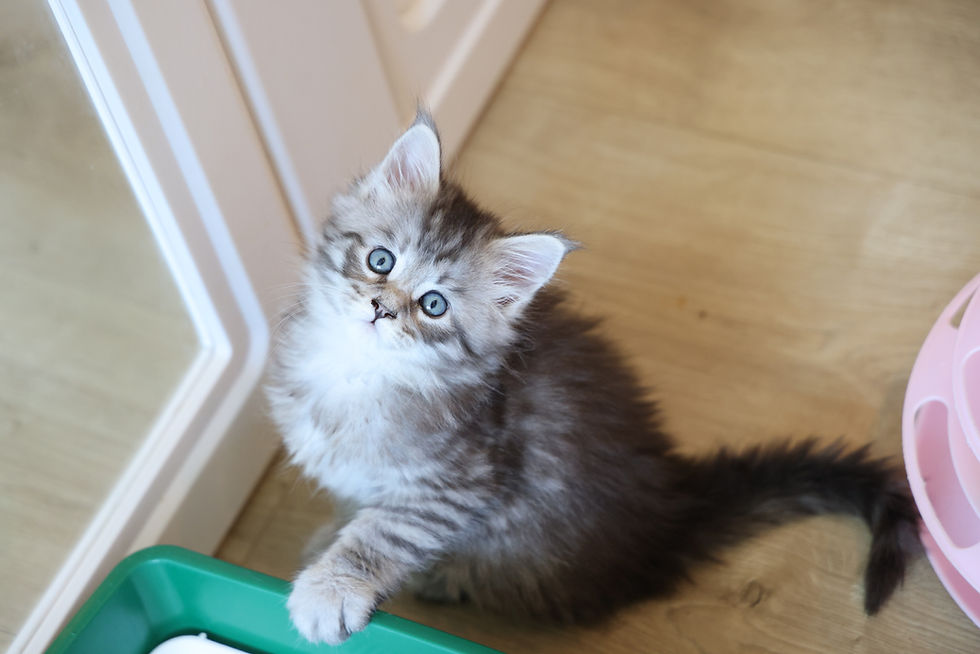🐾 Kitten Owner’s Quick Reference Guide
- Svetlana Jacobson
.jpeg/v1/fill/w_320,h_320/file.jpg)
- Jul 25, 2025
- 2 min read

🔹 Developmental Stages by Age
Immune System
Until 6 weeks of age, a kitten is protected by maternal antibodies received through colostrum. After that, the antibody level naturally declines. By 8–10 weeks, maternal protection is no longer effective, while the kitten’s own immune system is still developing.
The period between 8 and 12 weeks is a critical transitional phase. The kitten begins forming its own immunity while learning to adapt to the world. This is the optimal time for building lasting bonds — with people, other animals, the new home, and daily routine. It’s a unique window when the transition to a new family tends to be the smoothest.
By 3–4 months of age, the immune system becomes more active. During this period, it's essential to minimize stress: avoid chills, sudden dietary changes, or excessive new contacts.
Digestive System
– Introduce any new food or treat gradually, over 5–7 days.
🟡 Mild bloating, soft stool, or reduced appetite for 1–2 days is acceptable.
Nervous System
– In a new environment, a kitten may seem shy, hide, or act hyperactive — all are normal reactions.
– Gentle, consistent interaction with the owner helps the kitten adapt faster.
– Around 5–6 months, puberty begins. Kittens may become more independent or display stronger personality traits.
🟡 Behavioral changes at this age are part of normal maturation — not signs of a “spoiled” cat.
🔹 Teething
– Begins around 3–4 months and completes by 6–7 months.
– You may notice gum discomfort, reduced appetite, or chewing on objects.
– Occasionally accompanied by soft stool or decreased activity. During this time, it’s especially important to keep toys and food dishes clean to prevent infections such as gingivitis — which can be difficult to treat once it develops.
Think of how toddlers put everything in their mouths when teething — kittens go through a similar phase.
Avoid giving them plastic bags or unsafe objects they could chew on and injure their mouth.
🟡 If there is no fever, apathy, or significant inflammation — this is within the normal range.
🔹 First Days at Home
On the first day, a kitten may not eat, drink, or use the litter box. This is a normal stress response to the new environment — as long as the kitten remains alert and curious.
Offer the same food it was accustomed to at the breeder’s; dry food can be slightly moistened.
If you’re concerned about hydration, you can carefully offer water from a spoon or a needle-free syringe — drip slowly into the corner of the mouth.
Patience, calm, and familiar-smelling food will help your kitten settle in more quickly.
🔹 What’s Normal vs. When to Seek Help
✅ Normal Reactions:
– Soft stool for 1–2 days after moving
– Decreased appetite for 1–2 days
– Hiding or being extra sensitive
– Vocalizing at night
– Occasional vomiting shortly after eating
🚩 Contact your breeder or veterinarian if you notice:
– No eating or drinking for over 24 hours
– Lethargy or listlessness
– Fever above 103°F (39.5°C)
– Persistent vomiting or diarrhea lasting more than 2 days
– Labored breathing, severe coughing, or seizures



Comments